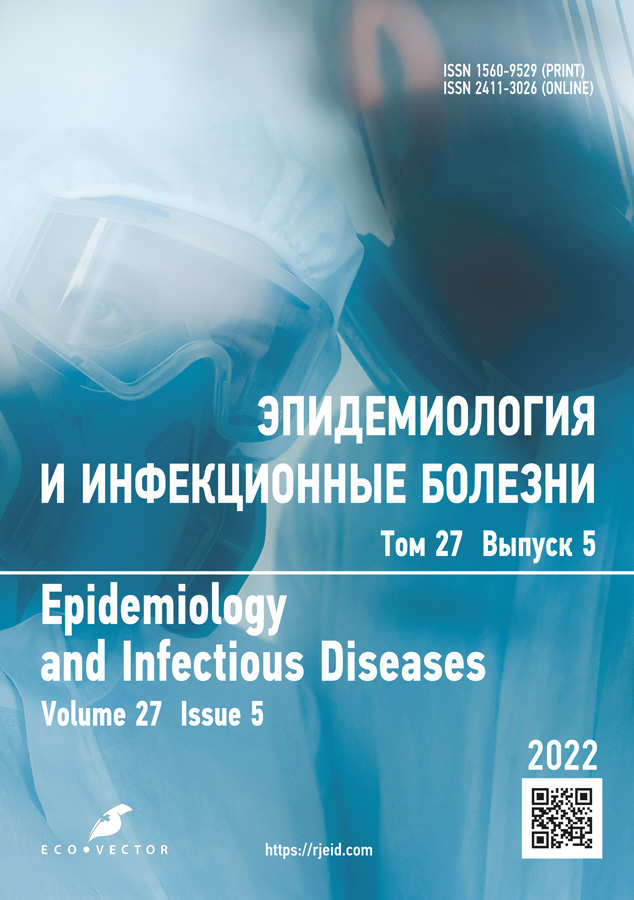Comparative analysis of the legal regulation of counteracting the development of epidemics (pandemics) in the USSR and modern Russia: the experience of forming a legal model of socially useful behavior of the individual
- 作者: Suranova T.G.1,2, Suvorov G.N.1,2,3,4, Zenin S.S.2,4
-
隶属关系:
- Federal Research and Clinical Center of Specialized Medical Care and Medical Technologies
- University of Tyumen
- Russian Medical Academy of Continuous Professional Education
- Kutafin Moscow State Law University
- 期: 卷 27, 编号 5 (2022)
- 页面: 301-310
- 栏目: Reviews
- ##submission.dateSubmitted##: 18.12.2022
- ##submission.dateAccepted##: 23.12.2022
- ##submission.datePublished##: 15.02.2023
- URL: https://rjeid.com/1560-9529/article/view/119215
- DOI: https://doi.org/10.17816/EID119215
- ID: 119215
如何引用文章
详细
This work is a comparative analysis of the experience of the legal regulation of public relations in counteracting the development of epidemics (pandemics) in the USSR and the Russian Federation. It is considered in the context of the legal formulation of a model of socially useful behavior of an individual. The model of socially useful behavior of an individual under conditions of the threat of epidemics in the USSR was normatively formed by the 70s–80s and included the traditional law-abiding and active components. The first was based on the population’s knowledge of the normatively fixed rules of action in the event of foci of the spread of specific diseases. The second was associated with the involvement of the public in the direct implementation of anti-epidemic measures.
It is revealed that the current Russian legislation does not create sufficient legal prerequisites for forming of a legal model of socially useful behavior of an individual. The circumstances that led to such a situation are indicated. It was concluded that it is necessary to accumulate its inherent restrictions and prohibitions in the uniform federal Rules of conduct for citizens and activities of organizations under the threat of epidemics of dangerous diseases with the provision of the states of the Russian Federation with the right to authorize their application to create legal prerequisites for the formation of a traditional law-abiding model of socially useful behavior of an individual.
Forming a legal model of socially active behavior of an individual requires the definition of legal forms and the permissible degree of public participation in preventive work by analogy with the extensive Soviet experience. In contrast, the incentives for useful behavior should be a ramified system of legal guarantees in the fields of labor, social security, education, and related areas, and their interrelationships.
全文:
作者简介
Tatiana Suranova
Federal Research and Clinical Center of Specialized Medical Care and Medical Technologies; University of Tyumen
编辑信件的主要联系方式.
Email: suranovatatiana@mail.ru
ORCID iD: 0000-0003-0768-8365
SPIN 代码: 7326-5273
MD, Cand. Sci. (Med.), Associate Professor
俄罗斯联邦, 28, Orekhovy boulevard, Moscow, 115682; TyumenGeorgy Suvorov
Federal Research and Clinical Center of Specialized Medical Care and Medical Technologies; University of Tyumen; Russian Medical Academy of Continuous Professional Education; Kutafin Moscow State Law University
Email: ipk6019086@yandex.ru
ORCID iD: 0000-0001-8452-5522
SPIN 代码: 9444-4577
Cand. Sci. (Law), Associate Professor
俄罗斯联邦, 28, Orekhovy boulevard, Moscow, 115682; Tyumen; Moscow; MoscowSergey Zenin
University of Tyumen; Kutafin Moscow State Law University
Email: zeninsergei@mail.ru
ORCID iD: 0000-0002-4520-757X
SPIN 代码: 1617-2620
Cand. Sci. (Law), Associate Professor
俄罗斯联邦, Tyumen; Moscow参考
- Barakhoeva AR. The impact of the legal attitudes of the individual on legal behavior of the individual. Legal Concept. 2019;18(3):56–60. (In Russ). doi: 10.15688/lc.jvolsu.2019.3.8
- Borisevich SV, Sizikova TE, Lebedev VN. COVID-19 pandemic: analysis of possible scenarios for the development of the epidemic of the disease in Russia. Journal of NBC protection corps. 2020;4(2): 116–130. (In Russ). doi: 10.35825/2587-5728-2020-4-2-116-130
- Anan’in SA. The development of prevention within the Soviet health care system during the period 1917–1936: historical aspects. Vestnik of Lobachevsky state university of Nizhny Novgorod. 2020;(1):9–19. (In Russ).
- Evstifeev DM. The constitutional duty of an individual and legitimate behavior. Russian Legal Journal. 2018;(6):70–84. (In Russ).
- Kondrashin VV, Kornilov GE. Russia’s famine and epidemic history in Russia: historiographic Situation. Ural Historical Bulletin. 2021;(1):6–13. (In Russ). doi: 10.30759/1728-9718-2021-1(70)-6-13
- Sakharov SP, Ostrovskaya DO. The relevance of anti-epidemiological measures in the past and present. University medicine of the Urals. 2020;6(4):25–27. (In Russ).
- King EJ, Dudina VI. COVID-19 in Russia: Should we expect a novel response to the novel coronavirus? Glob Public Health. 2021; 16(8-9):1237–1250. doi: 10.1080/17441692.2021.1900317
- Kim TH. Protective measures against COVID-19 and the rule of law on trial. Public Law. 2021;49(4):201–234. doi: 10.38176/PublicLaw.2021.06.49.4.201
- Busygina I, Filippov M. COVID and federal relations in Russia. Russian Politics. 2021;(6):279–300. doi: 10.30965/24518921-00603001
- Makarychev A, Kuznetsova A, Goes M. The COVID biopolitics in Russia: Putin’s sovereignty versus regional governmentality. Czech J Int Relat. 2020;55(4):31–55. doi: 10.32422/mv-cjir.172
- Guglielmo M. From COVID-19 or because COVID-19? J Card Surg. 2021;36(9):3317–3318. doi: 10.1111/jocs.15774
- Moulds S. Scrutinising COVID-19 laws: An early glimpse into the scrutiny work of federal parliamentary committees. Alternative Law J. 2020;45(3):1037969X2094699. doi: 10.1177/1037969X20946990
补充文件






